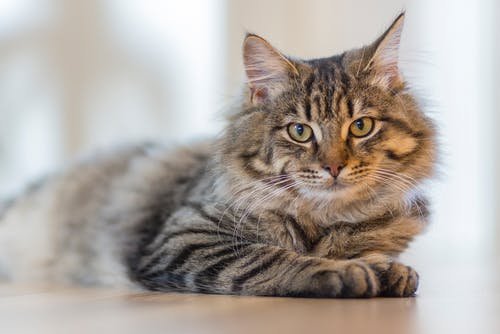Scientists identify deer as yet another carrier of the coronavirus and warn that they could be carrying mutated versions.
Just when the world seemed to be feeling a little more on top of the coronavirus pandemic after the release of the vaccine, it began to morph into the Delta variant and sent panic waves once again. Much about the virus is still yet to be understood even though scientists and health experts are racing to find causes and solutions to better protect society. However, one particularly alarming piece of information that it now making its way out of labs and to the public is that animals (including domestic cats and dogs) are able to contract and spread the virus to humans.
Researchers recently found that white-tailed deer have become infected with SARS-CoV-2 (COVID-19) and that some have been symptomatic while others are not. This means they serve as yet another source of the spread with infections continuing to climb not only in wild animals, but those in zoos and among household pets. Some scientists even believe that these animals are able to carry mutated versions that can be transferred to humans.
As far as human-to-animal transmission and vice versa, humans more commonly transfer infections to animals, including their pets. The Lincoln Children’s Zoo in Nebraska recently reported that three snow leopards died from COVID-19, and two of the zoo’s tigers caught the virus but have since recovered. The Smithsonian National Zoo in Washington, DC, reported in September that six African lions, a Sumatran tiger, and two Amur tigers tested positive for COVID-19.

Then, the U.S. Department of Agriculture reported COVID-19 antibodies had been discovered in white-tailed deer in Illinois, Michigan, New York, and Pennsylvania. Penn State University researchers published a study demonstrating a number of deer in Iowa have tested positive, and the virus has also been detected in deer in Ohio. Because deer are so common in these states, this is a major cause for concern.
“This is the first direct evidence of SARS-CoV-2 virus in any free-living species, and our findings have important implications for the ecology and long-term persistence of the virus,” said Suresh Kuchipudi, Huck Chair in Emerging Infectious Diseases, clinical professor of veterinary and biomedical sciences, and associate director of the Animal Diagnostic Laboratory, Penn State. “These include spillover to other free-living or captive animals and potential spillback to human hosts. Of course, this highlights that many urgent steps are needed to monitor the spread of the virus in deer and prevent spillback to humans.”
Angela Bosco-Lauth, PhD, DVM, assistant professor of biomedical sciences at Colorado State University in Fort Collins, Colorado, said somewhat reassuredly, “Humans are the presumptive spreaders of infection among deer. But going the other way, deer infecting humans, is less likely. The likelihood of a human contracting it from a deer they’ve just shot is pretty minimal.” She has seen variants present in animals, however, stating, “We’ve seen with Delta and other variants that mutations do arise pretty readily and become host-adapted.”
Bosco-Lauth and her colleagues have conducted experiments with cats, dogs, hamsters, and a ferret to trace the evolution of SARS-CoV-2 in those animals. The authors suggested in their latest study, which was published earlier this month in the Proceedings of the National Academy of Sciences, “the evolution of SARS-CoV-2 in companion animals and other potential animal hosts should be closely monitored.”
Because of the information shared by the zoos that different cat species are susceptible, in addition to deer, the probability of these common household pets contracting and spreading the virus is also troubling.
Sources:
COVID Spread Among Deer Causes Concern Over New Variants
SARS-CoV-2 evolution in animals suggests mechanisms for rapid variant selection


Join the conversation!